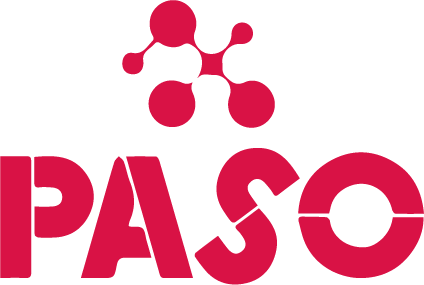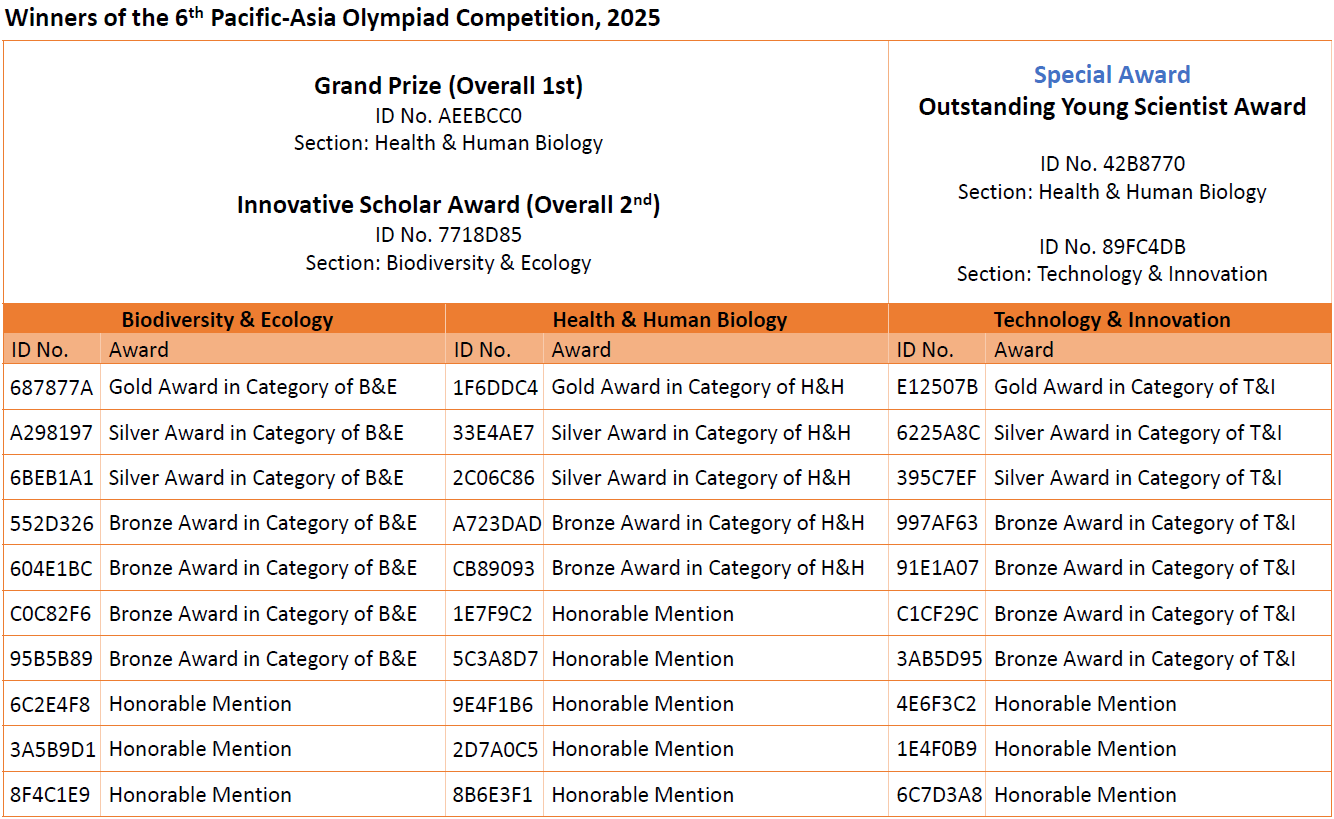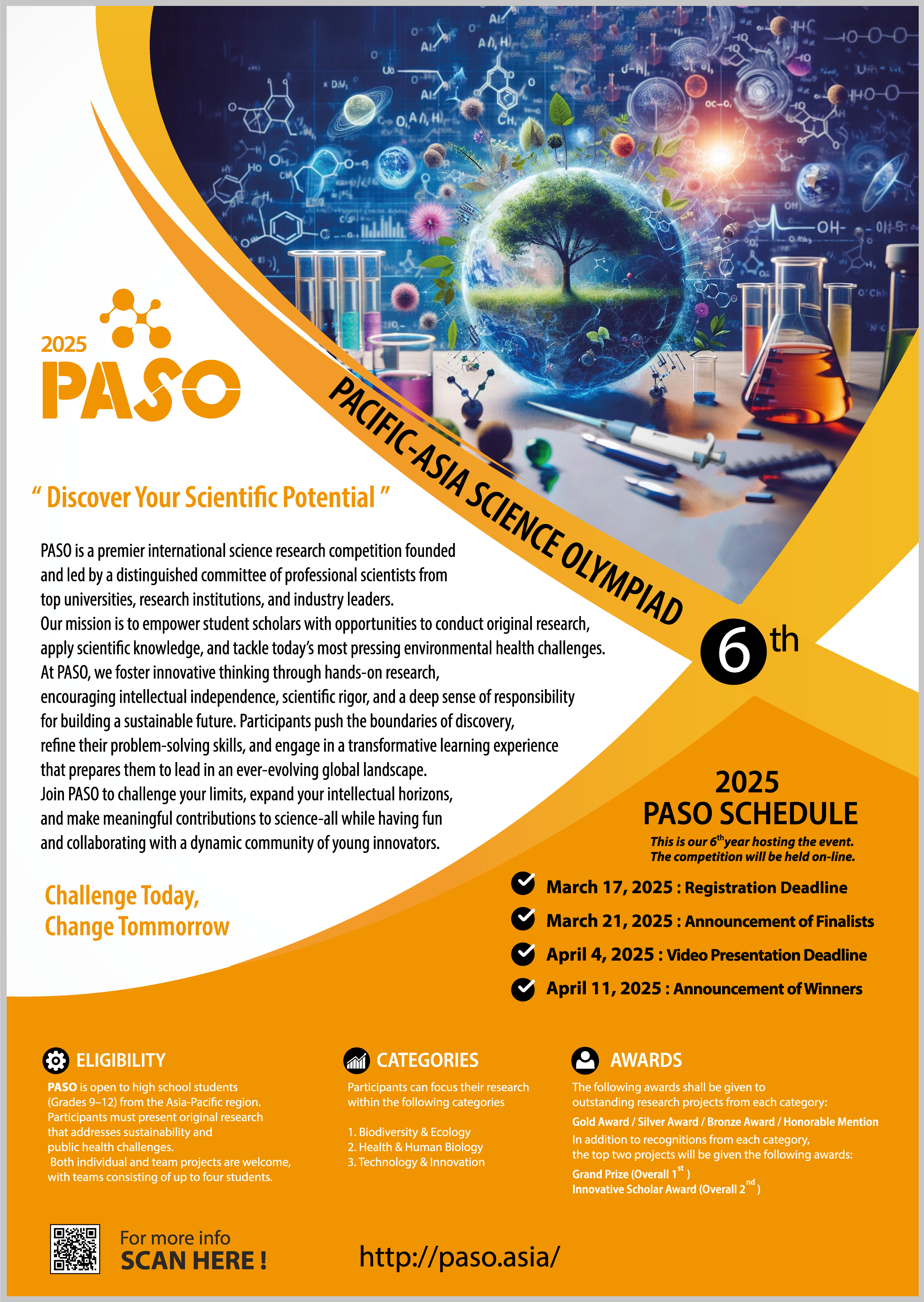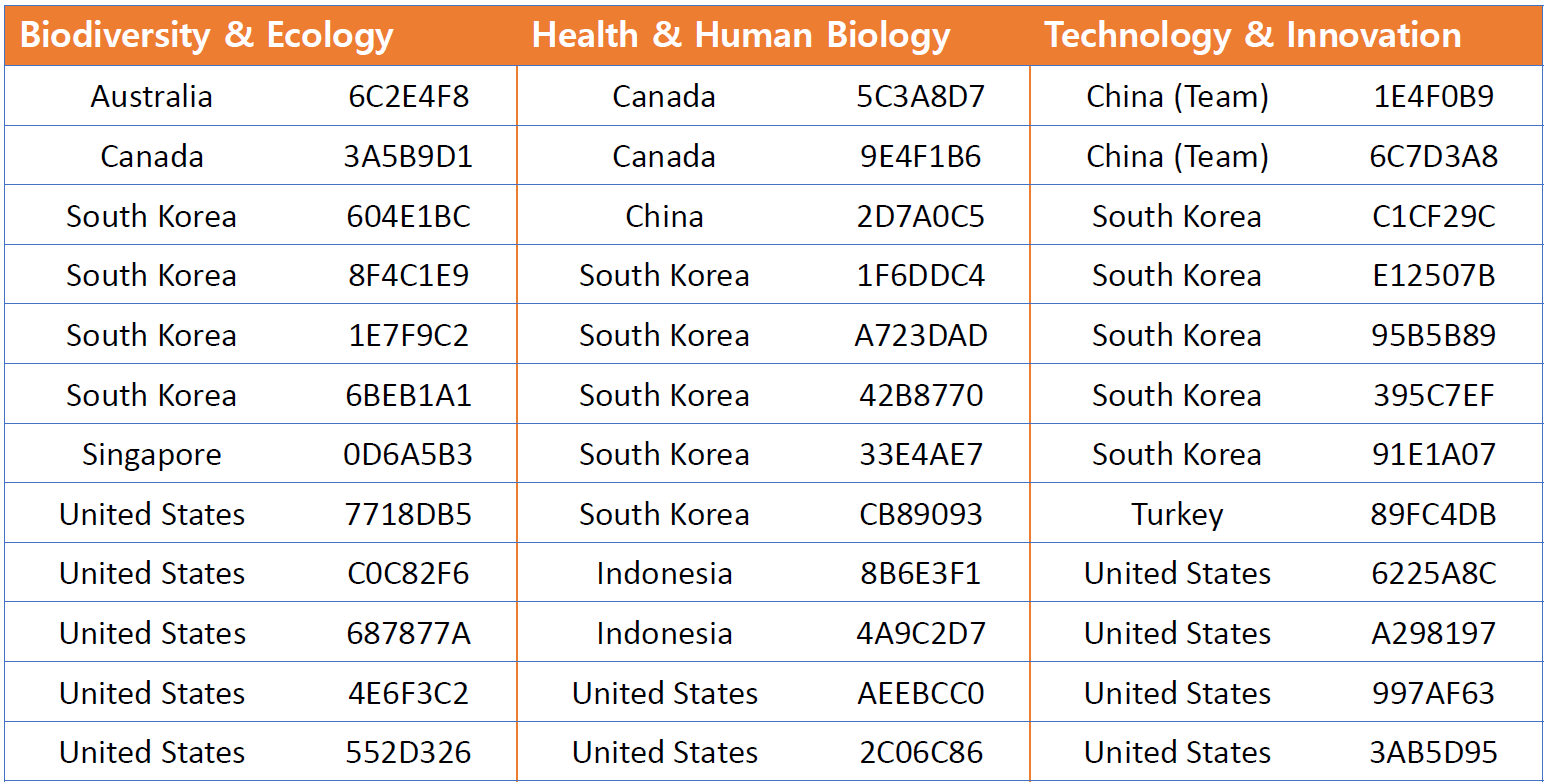About PASO
PASO (Pacific Asia Science Olympiad) is a premier international science research competition founded and led by a distinguished committee of professional scientists from top universities, research institutions, and industry leaders. Our mission is to empower student scholars with opportunities to conduct original research, apply scientific knowledge, and tackle today’s most pressing environmental health challenges.
At PASO, we foster innovative thinking through hands-on research, encouraging intellectual independence, scientific rigor, and a deep sense of responsibility for building a sustainable future. Participants push the boundaries of discovery, refine their problem-solving skills, and engage in a transformative learning experience that prepares them to lead in an ever-evolving global landscape.
Join PASO to challenge your limits, expand your intellectual horizons, and make meaningful contributions to science—all while having fun and collaborating with a dynamic community of young innovators.
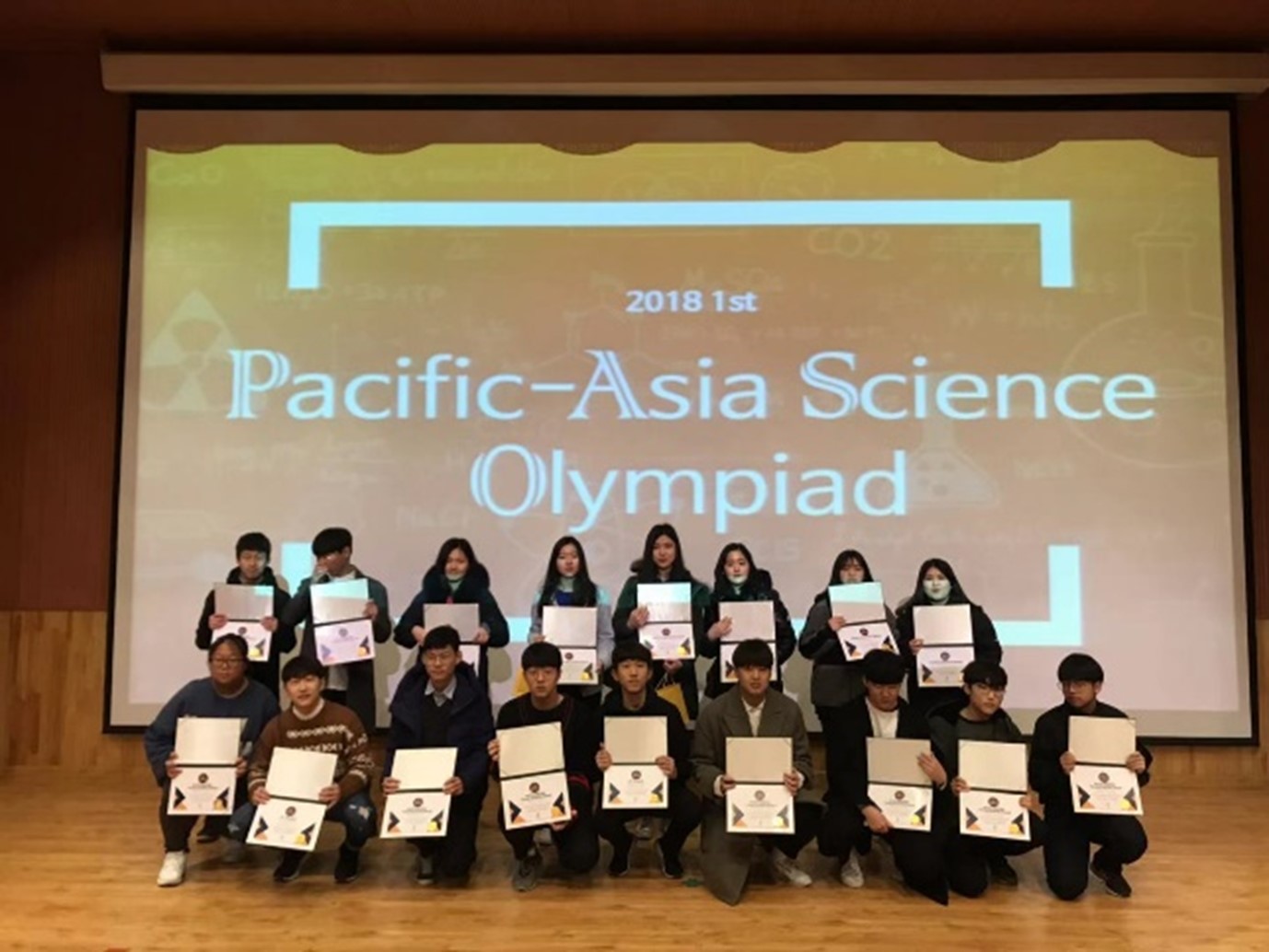
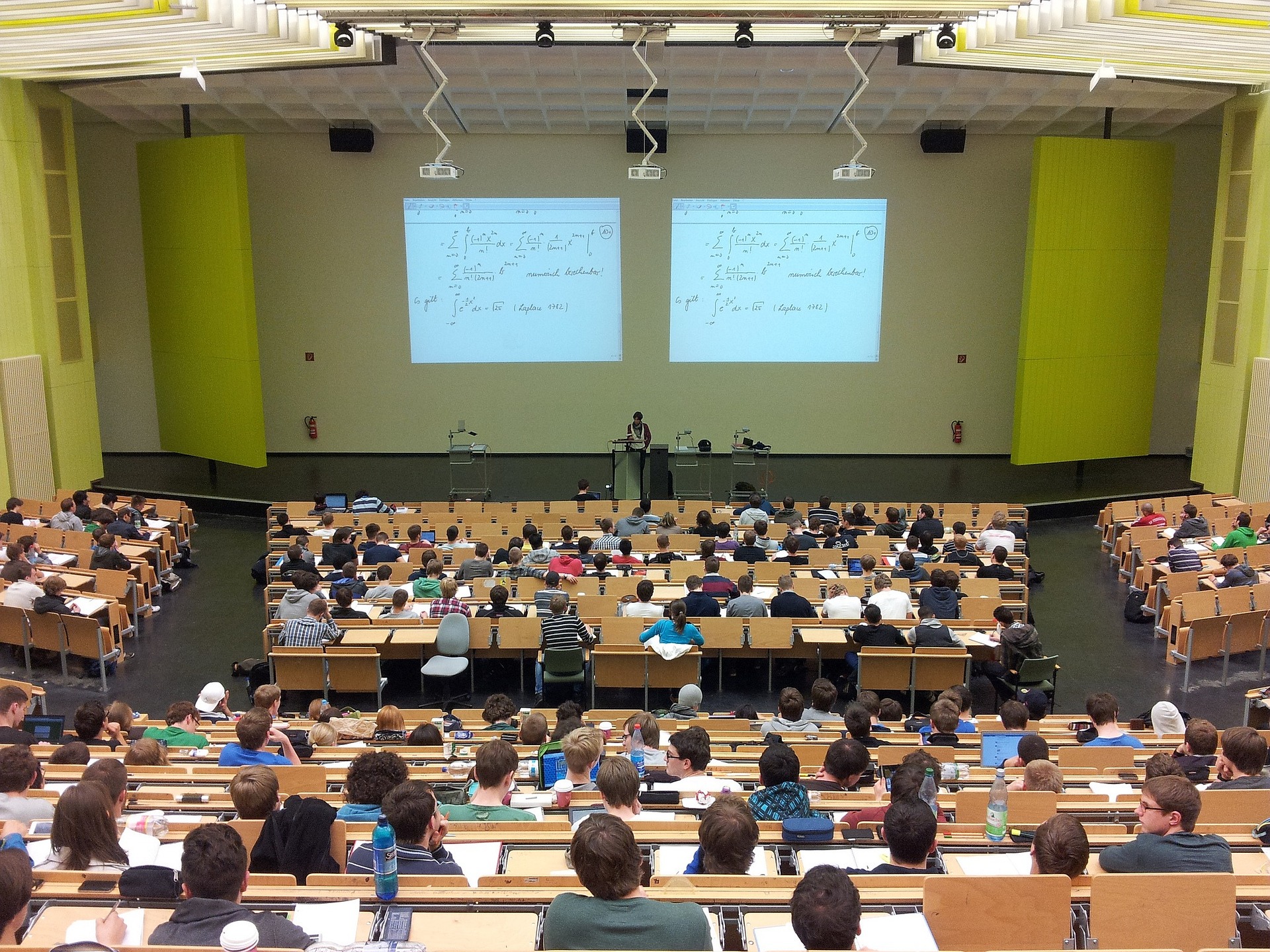


Categories
PASO is dedicated to addressing emerging environmental and health challenges—two deeply interconnected fields that often intersect, creating complex, multifaceted issues. We challenge students to explore these critical topics through hands-on research, encouraging meaningful discoveries and innovative solutions that drive real-world impact.
Participants can focus their research within the following categories:
1. Biodiversity & Ecology
– Investigate ecosystems, conservation strategies, and the impact of environmental changes on global biodiversity.

- Biology
- Chemistry
- Environmental Science
- Energy
- Natural Resources
2. Health & Human Biology
– Explore advancements in medical science, public health, and the biological mechanisms affecting human well-being.

- Medical Science
- Nutrition
- Molecular and Cell Biology
- Neurobiology
- Psychology
3. Technology & Innovation
– Develop cutting-edge solutions using science and engineering to address pressing environmental and health challenges.

- Computer Science
- Engineering
- Materials Science
- Astrophysics & Space
- Integrated Science
Do you have any question?
Process
Students will undergo a rigorous multi-stage evaluation process conducted by a panel of expert judges. Initially, all submitted projects will be reviewed, and selected candidates will be invited to advance to the next stage. Those selected must submit a video presentation of their research. Additionally, the judging panel may request a virtual Q&A session for further assessment.

01. Application

02. Paper
Evaluation

03. Finalist
Announcement

04. Video
Presentation

05. Presentation
Evaluation

06. Results
Announcement
| 01. Application | March 17, 2025 |
Complete Online Application Submit Original Research Paper |
| 02. Paper Evaluation | March 18-20, 2025 |
Judging Criteria: - Originality & Research Design - Creativity, Logic, and Potential for Impact - Application of Scientific Method & Data assessment |
| 03. Finalist Announcement | March 21, 2025 | Invited to Online Presentation |
| 04. Video Presentation | April 4, 2025 |
Submit Video (YouTube link) Presentation Evaluation by Category |
| 05. Presentation Evaluation | April 5-8, 2025 |
Judging Criteria: -Comprehension, Analytical Skills, Presentation Skills |
| 06. Results Announcement | April 11, 2025 |
Combined Scores from Paper and Presentation Awards and Evaluation Letter |
AWARDS
#Categories
- The following awards shall be given to outstanding research projects from each category:
* Gold Award
* Silver Award
* Bronze Award
* Honorable Mention
#Overall
- In addition to recognitions from each category, the top two projects will be given the following awards:
* Grand Prize (Overall 1st)
* Innovative Scholar Award (Overall 2nd)
REQUIREMENTS
#ELIGIBILITY
Registration
- The competition is open to students in Asia Pacific regions between grades 9th ~ 12th.
- A participant must present original research; team project is acceptable (up to 4 per team).
- In the case of a team, one member of the team (the first author) must register by creating an account. After that, if your team becomes a finalist, an account will be opened to register the names of all team members.
- You may submit more than one research paper individually or as a team. However, each research paper must be submitted with a separate account.
- See also at 2025 PASO rules and guide
Research Paper
- All research papers and presentations must be conducted in English.
- A research project must fall under one of the categories.
- The research paper must include cover page (title, name(s), school, country), abstract, introduction, materials and methods, results, discussion and conclusion, and references (APA or MLA format).
- The paper must be within 20 pages maximum (excluding cover page and references), not exceeding 10 MB in size.
- Different font types are acceptable with 12-point Times New Roman, 12-point Calibri, and 11-point Arial. Page margins one inch (2.54 cm) from each side.
- Research paper must be saved as a PDF file as “Paper Title_PASO25.pdf".
- If plagiarism in research is severe, it will be excluded from the review.
Presentation Video
- Finalists must upload their presentation video to YouTube.com and submit the URL link to the appropriate field on PASO website.
- We strongly recommend that your video includes title, introduction (background, questions, purpose), experimental process, results, conclusion (and discussion), application and future research.
- The video presentation must be at least 3 minutes and less than 5 minutes.
- If you are a team, every student must present in the video.
#POTENTIALLY HAZARDOUS AGENTS
- Research projects involving the following hazardous agents will not be allowed or will need prior review and approval. In such case, please contact PASO.
1. Potentially hazardous microorganisms (including bacteria, viruses, viroids, prions, rickettsia, fungi, and parasites) other than Biosafety Level 1
2. Recombinant DNA (rDNA) technologies
3. Human or animal fresh/ frozen tissues, blood, or body fluids other than established cell lines (BSL 1)
4. Hazardous chemicals and devices: toxicity, reactivity, flammability, or radiation
